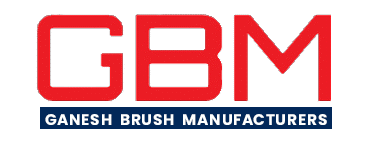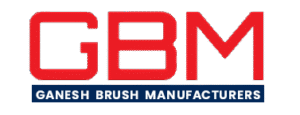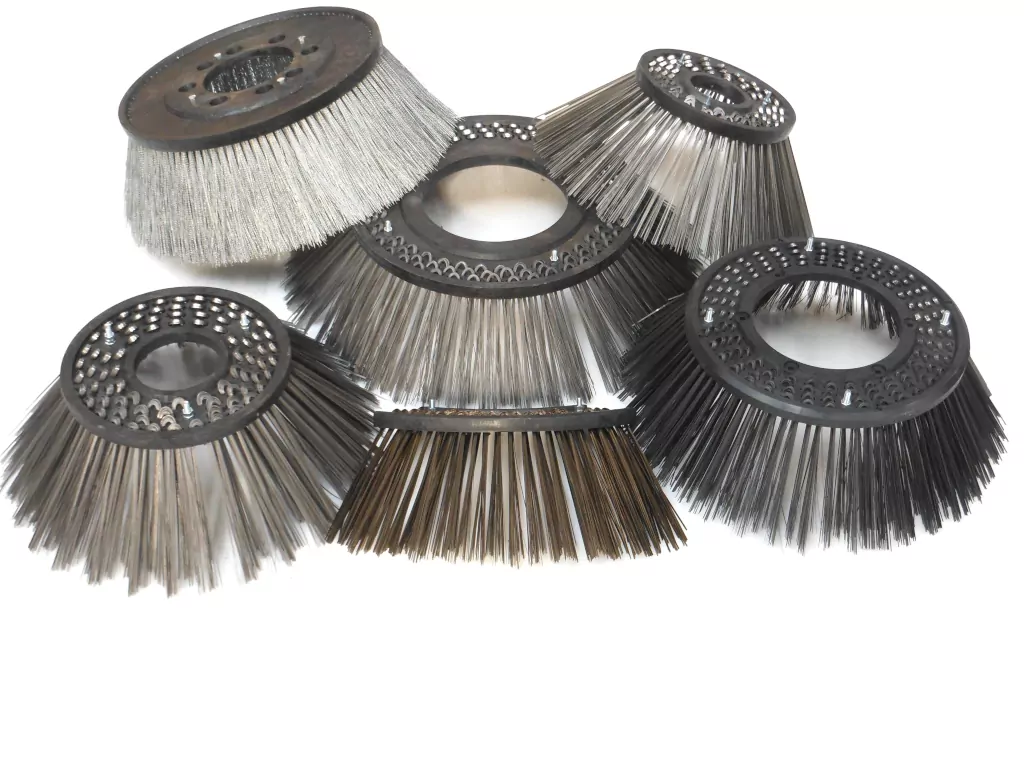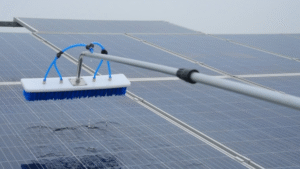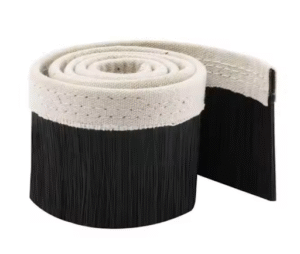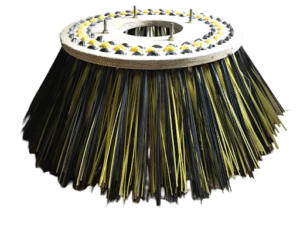Let’s admit it: when most people walk into a factory, they don’t look down. But you do. If you manage a facility or handle housekeeping for an industrial space, you already know this: a clean floor isn’t just about hygiene.
It’s about safety. It’s about mindset. And surprisingly, it starts with the humble but mighty Industrial Sweeping Brush.
But buying the right one? That’s where most people go wrong.
In India, factory floors aren’t all the same. Some deal with iron filings. Others are full of cement dust. Some run 24×7. Others work in shifts. And each one needs a different kind of sweeping brush.
So, let’s break this down in a way that’s not boring. Let’s talk like people who’ve worked in real factories, who’ve seen brooms snap mid-shift and brushes melt near furnaces.
Ready? Let’s sweep through the chaos.
Why This Isn’t Just a Cleaning Tool – It’s an Efficiency Booster
If you think a brush is a brush, think again.
A poorly chosen sweeping brush is like using a cloth towel to mop oil. Useless. Worse, it slows things down.
A good Industrial Sweeping Brush pays for itself. Here’s how:
- Less downtime: No need to stop and replace broken or bent brushes every week.
- Cleaner air: Proper bristle strength picks up fine dust, reducing airborne particles.
- Safer movement: Dry debris = fewer slips, especially in chemical or pharma units.
- Better machine health: Clean floors reduce debris intake in expensive equipment.
So buying a brush isn’t a purchase. It’s a performance decision.
Start With the Floor – Not the Brush
Before you Google or call a supplier, walk your floor. Really. Walk it like you’ve never seen it before.
- Is it smooth concrete or epoxy-coated?
- Is it oily, dusty, or full of metal shards?
- Is the waste dry, wet, or sticky?
- Are you sweeping manually or using ride-on or sweeping machines?
These answers decide everything. Because different brushes for industrial cleaning behave differently depending on surface type, debris load, and motion.
For example:
If your floor is epoxy-coated and you use a brush with stiff nylon bristles, you’ll end up with microscratches. Bad idea.
If your floor collects fine cement dust and you go with a soft brush, it’ll just push it around like a bad chai stirrer.
Bristle 101: The Heart of Every Sweeping Brush
Let’s talk bristles, the real heroes (or culprits) of every cleaning tool.
1. Nylon Bristles
- Use for: Dry dust, large particles
- Best in: Machine workshops, packaging areas, Airports.
- Pros: Durable, retains shape, chemical-resistant
- Cons: Can be too aggressive on polished floors
2. Polypropylene Bristles
- Use for: Wet waste, oily surfaces
- Best in: Food factories, dairies, Runways.
- Pros: Water-resistant, flexible
- Cons: Not great with heavy debris
3. Natural Fibre Bristles (like Coco or Palmyra)
- Use for: Medium dirt on smooth surfaces
- Best in: Warehouses, loading docks, Ports.
- Pros: Eco-friendly, affordable
- Cons: Not very long-lasting
Now here’s the trick: don’t pick just one type and mass-order it. Some of the best factory floors in India use hybrid brushes that combine two bristle types for multi-stage sweeping.
Smart, right?
Brush Types You’ll Probably Need
Depending on whether you’re sweeping by hand or using a floor-cleaning machine, you’ll run into different types of brushes for industrial cleaning.
1. Manual Sweeping Brushes
Perfect for tight corners, under conveyor belts, and areas that machines can’t reach.
- Go for a wide head (at least 18–24 inches) for efficiency
- Use angled bristles if the floor has uneven texture
- Pick a brush with aluminium or fibre-reinforced handles for longer life
Avoid: Wooden handles that absorb water and warp
2. Disc Brushes for Machines
These are your best friends if you’re using automatic scrubbers or sweepers.
- Check compatibility with your machine’s rotation speed and pressure
- Choose bristle stiffness based on floor sensitivity
Avoid: Using a stiff disc brush on epoxy floors. You’ll end up redoing your flooring in 6 months.
3. Cylindrical Roller Brushes
Used in large ride-on sweepers or industrial vacuum setups.
Special brushes Attached with forklifts.
- Great for continuous sweeping
- Picks up more debris in a single pass
Avoid: Brushes with improper core alignment. They’ll wobble and reduce sweep quality.
Biggest Mistake Indian Buyers Make
They don’t ask for customization.
Many Indian factories settle for off-the-shelf solutions from local shops or dealers. And here’s what happens:
- The brush doesn’t last even one-quarter
- It sheds bristles like an old dog sheds fur
- The cleaning team avoids it because it’s too heavy or awkward
And the floor? Back to square one.
Instead, work with someone who offers Special & Customized Brush solutions. Someone who’ll ask for your floor specs, humidity levels, and machine type before recommending anything.
Like… Ganesh Brush Manufacturers. But we’ll come to them in a bit.
Checklist Before You Buy (Yes, Bookmark This)
If you want to avoid making the wrong choice, use this simple 9-point checklist before buying:
- What is my floor type? (cement, epoxy, tile)
- Is the dust dry or wet?
- What kind of particles are we dealing with? (fine, medium, heavy)
- Will it be used manually or with a machine?
- How many hours will it run per day?
- What bristle stiffness does my floor allow?
- Is customization needed for shape or size?
- How often do I want to replace brushes? (Hint: less is better)
- Have I spoken to a specialist, not just a sales rep?
If your vendor doesn’t help you answer these questions, they’re not serious about your floors.
Real Use Case: How One Pune Factory Solved a 2-Year Cleaning Problem
Let’s get real.
A manufacturing plant in Pune was dealing with recurring dust accumulation near its CNC section. The problem? Metal chips and fine powder were clogging the floor brushes every 2 days.
They tried multiple suppliers, all promising “heavy-duty brushes”.
But nothing worked until they consulted a specialist who suggested a dual-layer disc brush with a mix of stiff nylon and softer polypropylene bristles, mounted on a reinforced polymer core.
That’s when things changed.
- Downtime dropped by 70 percent
- Floor cleaning became a one-pass job
- Worker satisfaction improved
- The brush lasted 4 times longer than the previous one
Moral of the story? Right brush. Right advice. Real difference.
How to Spot a Reliable Brush Maker in India?
If they just show you a catalogue and quote a price, run.
A good Industrial Brush Company will:
- Take time to understand your application
- Suggest multiple options based on usage
- Offer Special & Customized Brush solutions
- Use high-quality, tested raw materials
- Provide after-sales support or at least usage guidelines
That’s precisely what Ganesh Brush Manufacturers has been doing since 2008.
With roots dating back to the 1980s, they’re based in Pune and supply across India. They specialise in brushes for industrial applications, including sweeping, cleaning, polishing, and machine integration. From pharma to auto to FMCG units, they’ve got the experience and scale to handle small batches and mass orders without cutting corners.
Don’t Let the Smallest Tool Be Your Biggest Bottleneck
A factory runs on machines. But a clean factory runs on systems. And one of those systems is floor maintenance. That starts with a smart brush purchase.
So don’t treat the Industrial Sweeping Brush as just another line item. It’s the tool your floor crews trust every day. Choose it like you’d choose a good pair of shoes: fit, function, and feel.
And if you’re looking for someone who truly understands how brushes for industrial use need to be designed, tested, and built for Indian floors?
Talk to Ganesh Brush Manufacturers.
They don’t just sell brushes. They help factories across India stay clean, safe, and efficient, one sweep at a time.
Visit Ganesh Brush Manufacturers to explore their wide range or drop a query for a custom solution. Your floors will thank you.
